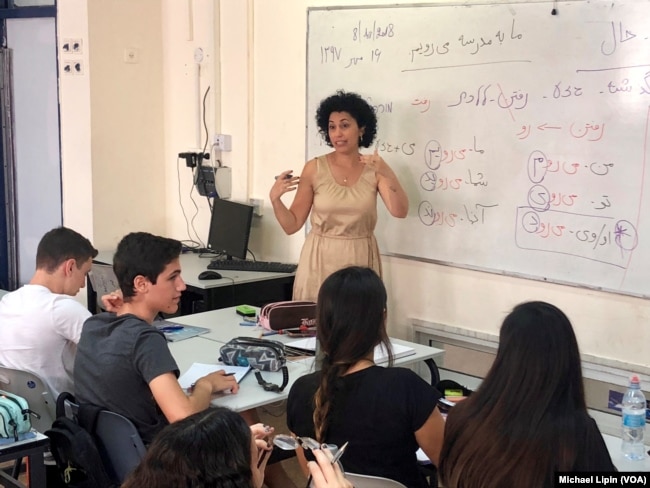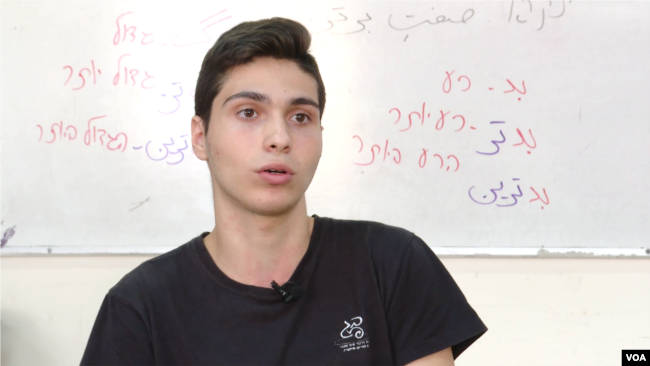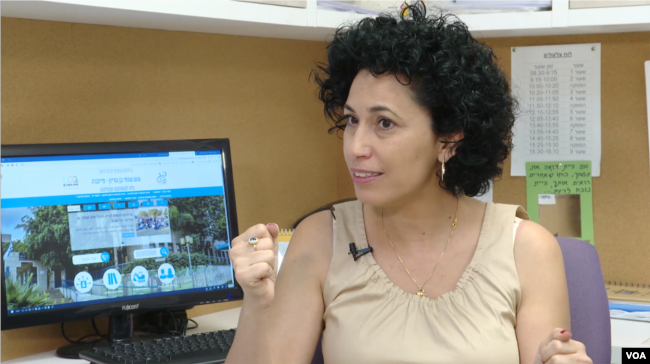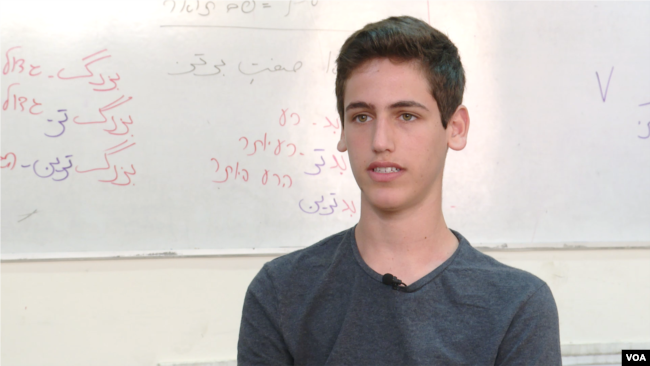VOA – Israel is seeking to expand its pool of experts in the language and policies of its long-time foe Iran, through a project of a retired Israeli general who has found a new calling in the classroom.
Brig. Gen. (Ret.) Pini Shmilovich has been running the Iran program at Ben Gurion High School in the central city of Petah Tikva since 2014. Named after Israel’s first prime minister, David Ben Gurion, it is Israel’s only public high school offering a specialized course in understanding Iran’s people and its Islamist rulers who advocate the destruction of the Jewish state.
About 50 students are voluntarily enrolled in the government-approved “Iran, Security and Intelligence” program at the school, whose 900 students have free tuition.
For five hours a week, students learn to read, write and speak in Farsi. Every two weeks, they memorize about 15 words, to enable them to make basic conversation in Farsi at the end of the two-year course.
For an additional three hours a week, the program also teaches 16- and 17-year-olds about Iranian support of militant groups hostile to Israel, and the origins of Shi’ite-majority Iran’s involvement in regional conflicts with its Sunni Arab neighbors.
Arabic, usually the only optional language offered at high school level in Israel, also has an enrollment of about 50 at the school. English is mandatory for all students.
In a recent VOA Persian visit to the school, some students said they were taking the Iran class to boost their chances of doing prestigious intelligence work as part of their compulsory military service after graduation.
“I have a better knowledge about languages, and I’m serious about what I’m doing,” said a male student named Yotam. “You have to be honest and know to keep a secret when you are going into intelligence. And I think I am able to do it.”
Shmilovich, who served in Shin Bet — Israel’s internal security agency tasked with countering threats from terrorism and espionage — has seen 50 students graduate from his Iran program in four years. He said about 20 of them have made it into military intelligence units, where he believes their studies can be put to good use.
“I don’t know when and if there will be peace between us and Iran,” Shmilovich said. “But I think it’s important that in Israel, there will be enough people who know what Iran is, and who can influence and be pro-active in the issue of the relationship between Iran and Israel.”
Israel is one of only a handful of countries in which military service is obligatory for men and women. Starting at age 18, men are required to serve for two years and eight months, while women serve for two years. Those with Farsi skills doing intelligence work get additional language training from the military to make them more proficient in the language.
Hanna Jahanforooz, an Iranian-born Israeli singer and educator, teaches Persian language and culture at the high school. She said she does not see any contradiction between her focus on cultural education and the rest of the program’s emphasis on grooming students for military intelligence roles.
“First of all, I want Israel to be safe,” Jahanforooz said. “And the second thing — if we in Israel can do anything for the Iranian people in Iran to be free, and the students can use (this program to achieve that), it’s OK with me. Because the people in Iran deserve freedom, and this program can be amazing.”
Another of her students, Nadav, said the program already has influenced his goals for military service.
“I want to help Israel with all of the problems that we have regarding Iran, and the Arabs in Israel and the countries next door. To bring peace, not for anything bad. Mostly, with the Farsi,” he said.
By making Farsi fun to learn, Jahanforooz said she wants her graduates to see Iran’s people as their friends, even as some prepare to gather intelligence on its government.
This article originated in VOA’s Persian Service.
 Shabtabnews In this dark night, I have lost my way – Arise from a corner, oh you the star of guidance.
Shabtabnews In this dark night, I have lost my way – Arise from a corner, oh you the star of guidance.








